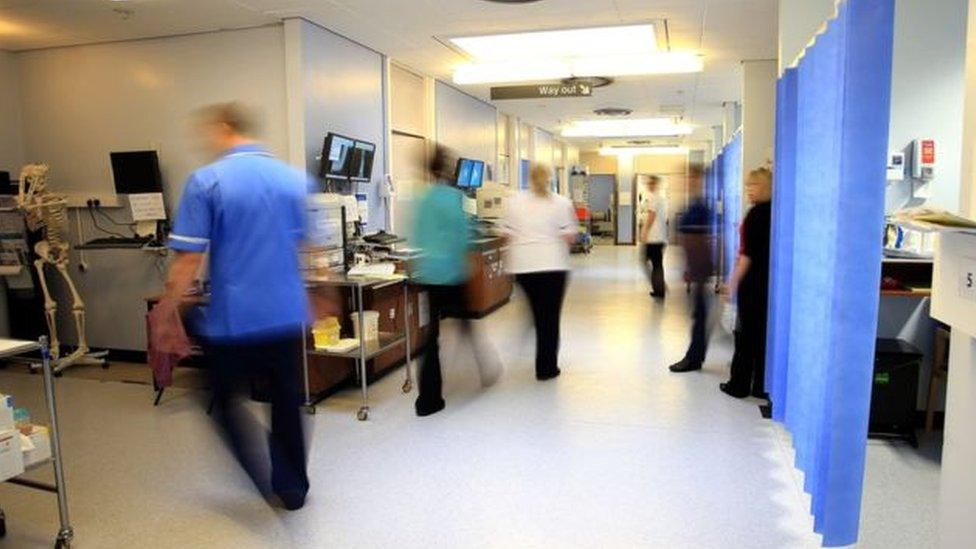NHS waiting lists: Patient is left scared to go out
- Published
Denise Cole says her quality of life is "really awful" as she waits for a knee replacement appointment
Being confined to home watching "rubbish TV", taking 22 tablets a day and left scared to go out are some of the realities of being on an NHS waiting list.
The Welsh NHS planned to eliminate two-year waits by March.
Yet the latest figures show 38,600 patients were waiting for 49,594 procedures in November 2022.
The Welsh government said numbers had fallen by a third from a high in March, after record levels during Covid.
"I've hardly got a social life at the moment," said Frank Moore, 69, from Newtown, Powys.
"I used to go out once a week say, socialising to the pub, or wherever, all that's gone and it is horrible.
"When you're scared of going out it's very difficult, so I have a lot less contact."
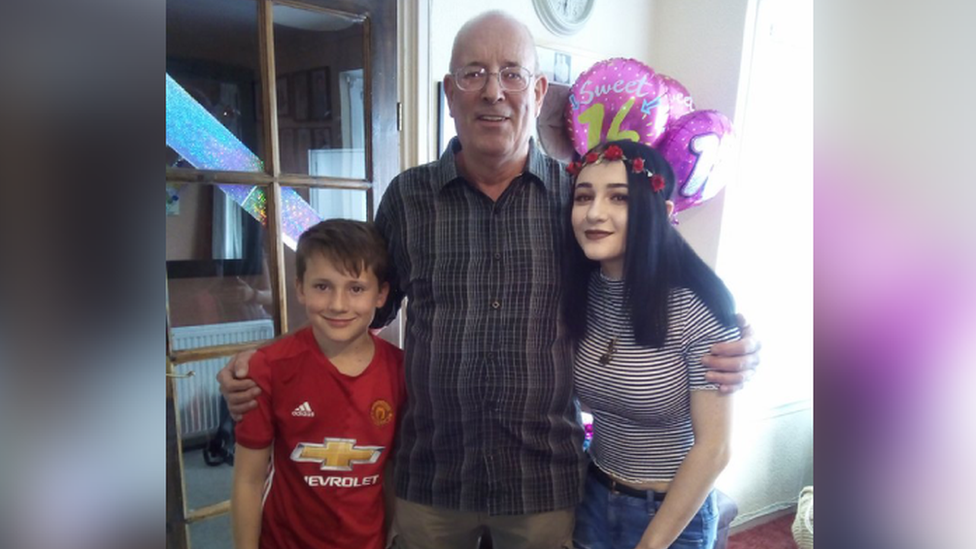
Being on the waiting list for so long has had an impact on Frank Moore's relationship with his grandchildren
Mr Moore has been waiting for surgery on a stomach hernia since 2020 and had an operation cancelled in autumn 2021 due to Covid pressure.
He is now fearful of going out and aggravating his condition or picking up other illnesses.
Mr Moore describes himself as "uncomfortable all the time" and does not agree with the simplicity with which his condition has been described as "non life-threatening".

"I'm frightened of going out in case I catch a cold," says Mr Moore
"When they say it's not life-threatening, I dispute that fact because somebody with mental health problems, they could tip over the edge quite easily and I'm sure it probably happens," he said.
While it has affected his relationship with his grandchildren, Denise Cole, from Neath, is enduring similar heartache.
"Simple things, little ones' sports day, grandmothers' race. You know, 'Oh come on grandma, do it'. 'I'm sorry sweetheart I can't do that' and that really hits," she said.
"There are people out there worse than we are, but the effect on life is awful, really is awful.
"My balance is affected and I don't want to fall flat on my face in front of my grandchildren."

Denise Cole used to enjoy dance fitness classes but is no longer able to
The 57-year-old tore cartilage in her knee in 2017 and also has arthritis, taking 22 tablets a day to manage the pain.
A full knee replacement was planned, but last year she was referred to a different surgeon for a partial knee replacement instead, meaning she is again on a waiting list.
Ms Cole says she is tired of sitting at home watching "rubbish TV" and wishes she could be more active with her grandchildren.
Christine Haley, from Swansea, also needs knee surgery and said she has had three separate urgent referrals, but is still waiting.
"It's like every day you're waiting for the mail," the 66-year-old said.
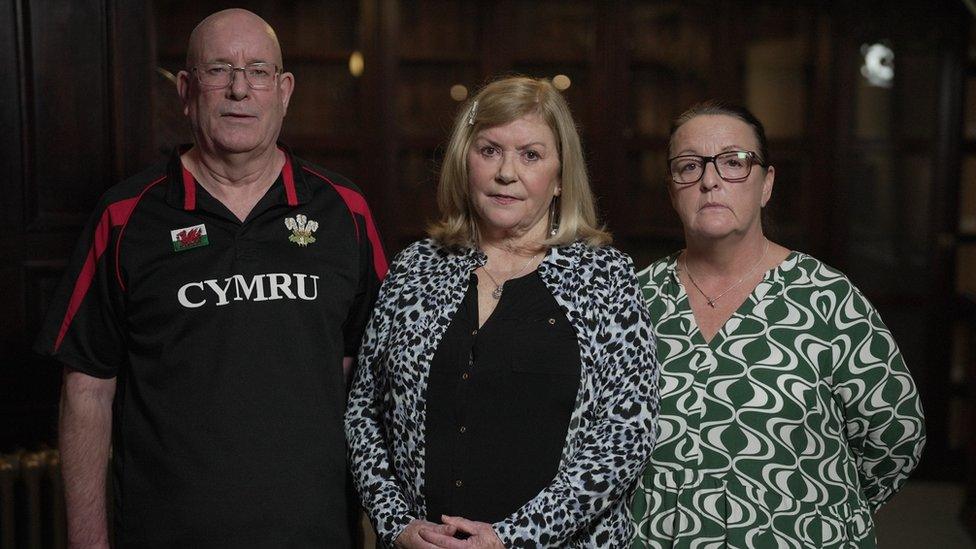
Denise, Frank and Christine have had their lives badly affected by waits of more than two years
Swansea Bay health board, which covers Ms Haley, is doing much of its planned orthopaedic surgery at Neath Port Talbot Hospital in Port Talbot.
However, she has been told she must have her surgery at Morriston Hospital, Swansea, where there is a waiting list of more than four years, because of underlying health conditions.
That has left Ms Haley feeling like she is "back on the scrap heap again" and "old before her time".
"It's not just affecting your knee, it's throwing all your body out of kilter," she said.
"Pain levels can make you really irritable with people you're close to."
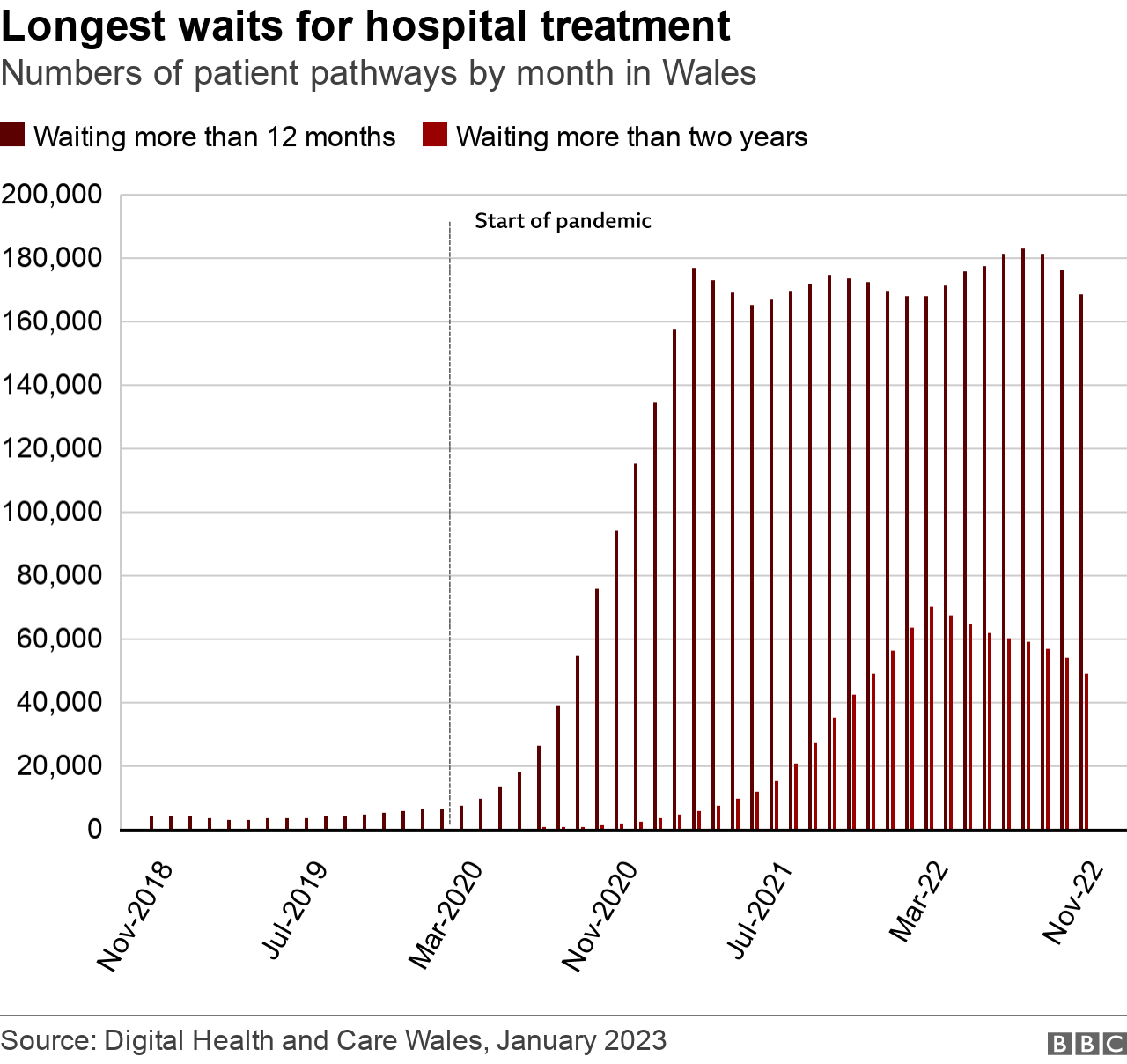
The Welsh government said: "The number of people waiting more than two years for treatment has fallen by nearly a third to the end of November 2022 compared to a high in March.
"We are committed to ensuring no-one waits longer than a year for treatment in most specialities by spring 2025.
"These patient stories highlight the importance of this commitment, and while we already have excellent examples of this working well for people, we know we have more to do."
Betsi Cadwaladr health board - which is treating Mr Moore - admitted "unacceptably long waits" had a "significant impact on people's quality of life".
"Reducing waiting times is a key priority and we're continuing to do all we can to ensure that people are seen in order of clinical priority as quickly and as safely as possible," said deputy executive director of nursing Chris Lynes.
Swansea Bay health board, which is treating Ms Cole and Ms Haley, described long waits as "far from ideal".
"We are already delivering on our plans to reduce waiting times," a statement said.
"Between April and the end of December 2022 the number of people waiting over two years for treatment fell by 38%. However, we are determined to do even more to bring waiting times down further."
BBC Wales Live is on BBC One Wales at 22:35 GMT on Wednesday
Related topics
- Published19 January 2023
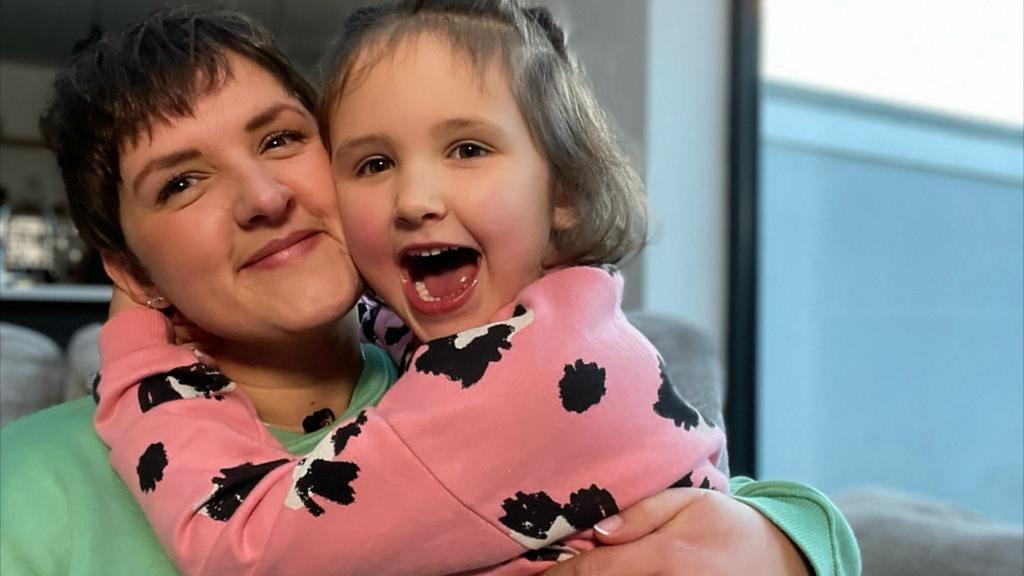
- Published4 January 2023
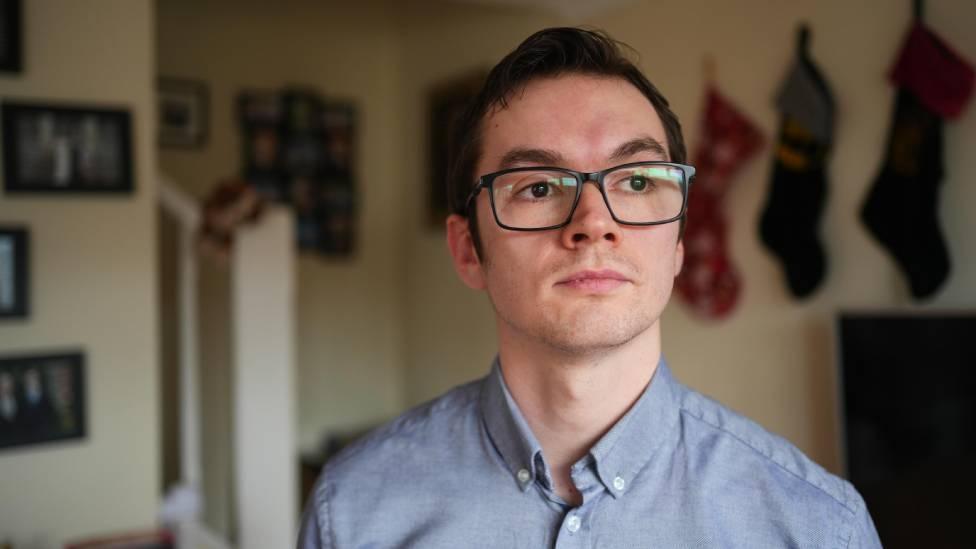
- Published9 January 2023
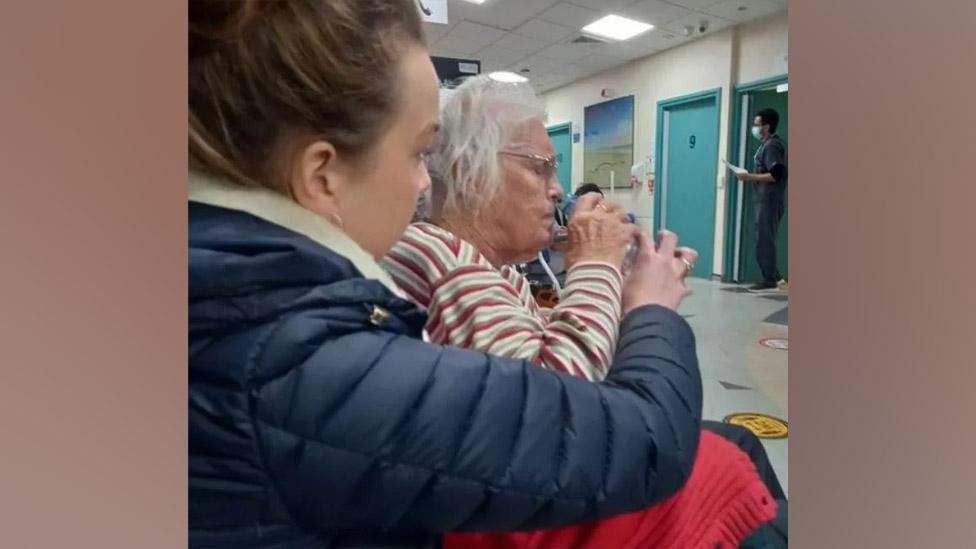
- Published20 October 2022
